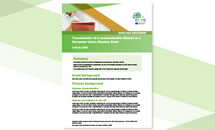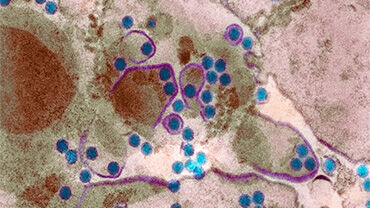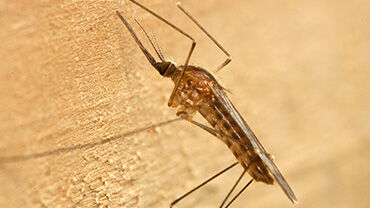Rapid risk assessment: Dengue outbreak in Réunion, France, and associated risk of autochthonous outbreak in the EU/EEA
Following the first update of the risk assessment ‘Dengue outbreak in Réunion, France’ published on 5 July 2018, this second update has been triggered by the significant size of the outbreak and its expected duration, which is anticipated to overlap with high vector activity in the southern EU.
Executive Summary
Since 2018, Réunion has been facing a major outbreak of dengue, with a first wave observed in 2018 and a second higher wave observed in 2019. In 2018, the peak in cases was during April–May and over 6 700 cases were reported that year. Since the beginning of 2019 and as of 11 June, over 15 000 autochthonous confirmed cases of dengue have been reported. Nine deaths were reported among the cases in 2019, with dengue being identified as the direct cause of death for five. Dengue virus (DENV) transmission in Réunion is not unexpected, but the ongoing outbreak is very large compared to the outbreaks of dengue recorded over the past 15 years. The mosquito Aedes albopictus (Ae. albopictus) is considered to be the principal vector in Réunion. With the arrival of the southern-hemisphere winter in July, and based on the pattern of previous outbreaks observed on the island, this outbreak is expected to reduce in intensity as the climatic conditions lead to a decrease in the mosquito population and become less favourable for virus replication in the vector.
The likelihood of onward transmission of DENV in the European Union (EU) and the European Economic Area (EEA) is associated with the probability of importation of the virus by viraemic travellers into receptive areas, defined as locations with established and active competent vectors. Aedes albopictus is established in parts of southern and central EU (more information about vector distribution is available from the mosquito maps). Currently and throughout the summer season, environmental conditions are favourable for the activity of the vector, and its abundance should be sufficient to support local outbreaks, as illustrated by sporadic cases associated with autochthonous transmission events that have occurred in recent years in continental EU, notably in France.
Travellers to Réunion, and to other regions with ongoing DENV circulation, should take personal protective measures against mosquito bites to limit exposure to DENV; this applies equally to other mosquito-transmitted arboviruses. These measures can also reduce the probability of the virus being imported into receptive areas of the EU/EEA.







